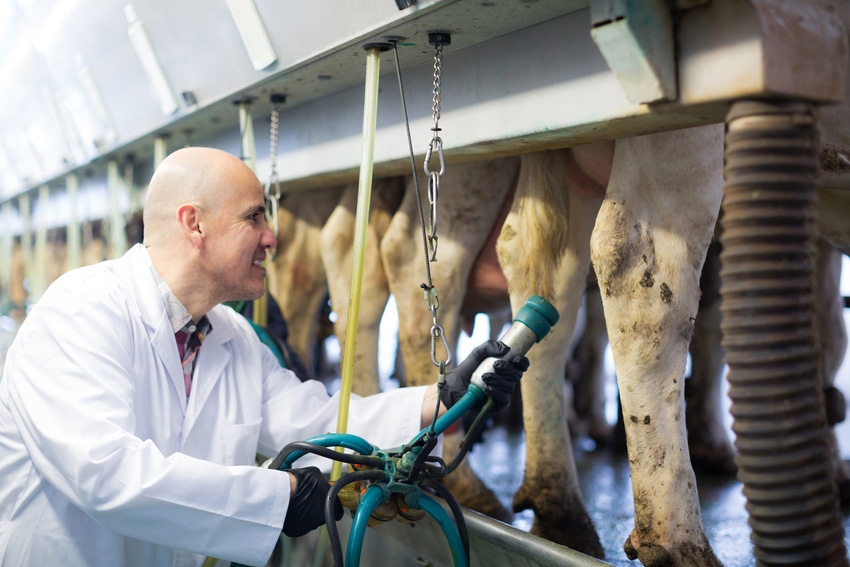N&H TOPLINE: Rapid diagnostic test for mastitis under development
Test will aim to provide sensitive measurements in order to stratify mastitis by bacterial class.

Abingdon Health, a tenant at the University of Birmingham’s bio-incubator in the U.K., is developing a rapid diagnostic test for bovine mastitis, a common and serious health problem in dairy cows that has a large financial impact on the global dairy industry.
Mastitis is usually caused by a bacterial infection in the cow’s teats or udders and reduces the quality of milk, rendering it unsaleable. Mastitis can be fatal to the cow and is a problem for dairy farmers around the globe — for example, in India, which has 43.6 million dairy cows, making up 16.5% of the global dairy cow population.
Currently, mastitis is detected by visually inspecting the milk, and the type of infection is confirmed by sending it off for laboratory testing, which is both time consuming and expensive, the University of Birmingham said in an announcement.
Abingdon’s diagnostic test for mastitis will be based on a lateral flow technology that can be used on the farm to identify the type of bacteria that caused the infection, the announcement said.
Test results will ensure that the cow is quickly prescribed the right antibiotic to treat the infection, and this is expected to reduce inappropriate use of antibiotics as well as the spread of disease among cattle within a milking herd.
The test will aim to provide sensitive measurements in order to stratify mastitis by bacterial class (Gram-negative or Gram-positive).
Abingdon chief technical officer Dr. David Pritchard said, “The pressure to reduce the use of antimicrobials in food production is growing rapidly. To do this, we need to provide farmers with rapid diagnostic tests that guide the choice of antibiotic and ensure animals are treated quickly and effectively with the right antibiotic. We also believe this test will provide benefits to the dairy industry in terms of milk quality and yield and to the cattle in terms of animal welfare.”
The diagnostic test's development has been funded by an £805,000 grant from Innovate UK, the U.K.’s innovation agency. The test will be developed in partnership with the University of Glasgow in Scotland and will combine the diagnostic assay development expertise of Abingdon with the animal health and biomarker knowledge of the University of Glasgow.
In April, when Abingdon announced that it was awarded the grant, University of Glasgow professor of veterinary biochemistry David Eckersall said, “This Innovate UK project is to commercialize the development of diagnostic tests for mastitis, which is the most serious health problem in dairy farming. The project is the culmination of a decade-long research program where we have identified and characterized, in the laboratory, potential biomarkers for this disease. The project will translate our research into technology that can be used on the farm and also demonstrate its value in the dairy industry.”
University of Glasgow professor of molecular epidemiology and project lead Ruth Zadoks added, “The pressure to reduce the use of antimicrobials in food production is growing rapidly, and some countries have already imposed limitations on antimicrobial use, such as quota. We must provide dairy farmers with the tools to minimize antimicrobial use without jeopardizing cow health or food safety. This project and the School of Veterinary Medicine’s good relationship with the dairy industry enable us to do so.”
Abingdon is a U.K.-based developer and manufacturer of lateral flow immunoassay tests and readers. In addition, Abingdon offers development and manufacturing services for customers looking to develop new assays or looking to transfer existing laboratory-based assays to a lateral flow format.
About the Author(s)
You May Also Like



